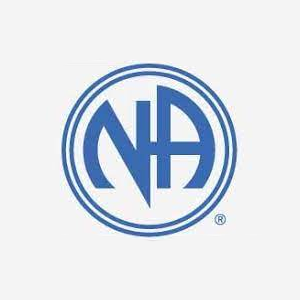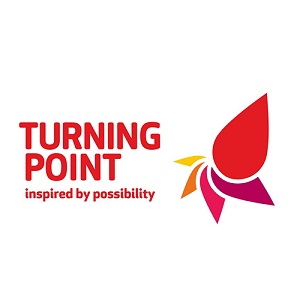Drug & Alcohol Rehab in Cumbria

How Does Rehab Work?
The process of rehabilitation helps individuals regain their mental health and their overall quality of life. Rehab involves patient-focused therapy in which behaviours involving drug and alcohol dependence are targeted, coping strategies introduced, and support services provided. Individuals learn how to prevent relapse and have the option of entering an inpatient or an outpatient programme. Inpatient rehabilitation requires that individuals stay at a chosen facility or recovery centre 24/7. Outpatient rehab programmes have clients maintain their work commitments while partaking in counselling sessions and group work.
What Happens During Residential Rehab?
The choice to seek rehab for drug and alcohol addiction is a brave one and will be supported with individualised rehabilitation services. We provide a breakdown of what you can expect during the process of drug and alcohol rehab.
Rehabilitation begins with an assessment completed by an experienced medical professional. The goal is to investigate your history of substance use, and whether pre-existing medical conditions are present. This includes any comorbidities such as mental health disorders that require specialised treatment.
The next stage of a rehab programme is detoxification. Detoxification from substances requires the removal of the drug or alcohol from the body, typically over a period of time that limits withdrawal symptoms. Detox should ideally be monitored professionally to assist those with withdrawal symptoms. When the substance is removed from your body, the next phase of treatment begins (therapy).
Rehab includes meeting with a counsellor for private & group sessions, participation in skill-building activities as with an inpatient or residential rehab, or group meetings that are common with outpatient 12 Step programmes. We look at the various phases of rehab in greater detail.
1. Assessment

To receive the best treatment for your needs, an assessment is definitely the first stage in the recovery approach. Reviews are carried out with a medical professional and will include a telephone screening. The professional will ask questions with regards to your state of health, your substance use, any history of addiction, and whether you might have any comorbid mental health problems. A phone assessment provides staff members with private information that will help to safely handle the detox process.
When you wish to pursue treatment for drug and alcohol addiction, a medical assessment must be completed. Assessments will guide therapy because it provides staff with the information, they need to develop a tailored treatment plan or advise on the appropriate intervention.
2. Detox

Detox will be completed before therapy commences. It is often performed in a residential facility where individuals can receive 24/7 care to reduce withdrawal symptoms.
Detox is necessary where substance misuse and dependency are present. It should be managed by experienced and knowledgeable medical staff to reduce uncomfortable and severe withdrawal symptoms. For those who go through withdrawal, there is a greater risk of relapsing if not managed within a treatment facility. In a residential setting, qualified staff may offer detox medication to minimise uncomfortable withdrawal. The approach for therapy, once detoxification is completed, is determined by the medical assessment.
3. Therapy

Once a medical assessment and detox are finished, individuals will enter therapy. Therapeutic intervention may consist of inpatient or outpatient services which depend on your budget and life commitments. Some of the most common therapies you can expect at a treatment centre include traditional one-on-one therapy, trauma counselling and skill-building, as well as group therapy sessions.
Step by Step Process for Residential Rehab
To understand your medical and mental health history.
Arrange a suitable date to begin your journey to recovery.
Begin the managed withdrawal process from substances including alcohol.
To understand the root cause of addiction and how to overcome it.
Aftercare is provided to help manage the risk of relapse.
To help heal the wounds that addictive behaviour has caused others.
Find your Nearest Rehab Centre in Cumbria
The nearest rehab centre is CADAS.
Address: CADAS, 5 Victoria Pl, Carlisle CA1 1EJ
Call 0333 4444 432 to discuss your alcohol or drug rehab requirements and any other questions you may have about the process of residential rehab.
Outpatient Addiction Services in Cumbria
Outpatient addiction services are available to those who are unable to commit to a residential facility or require a more affordable option for treatment. To help you with the right treatment, we provide a breakdown of outpatient services compared to residential ones.
An outpatient service doesn’t require individuals to stay at the residence for treatment. If you have work, family, or other lifestyle commitments, outpatient services allow you to concentrate on these areas while visiting a clinic or counsellor to receive addiction therapy and other care services.
PrivateOutpatient care involves individual counselling with a therapist. You are required to travel to the therapist and engage in hour-long treatment sessions. Aside from private therapy, there are also free services from charities and government-backed organisations to address substance addictions.
The Benefits of Outpatient Services
A private outpatient programme is tailored to address client needs. The aim is to deliver a quality standard of support and introduce individuals to the coping mechanisms they need to prevent relapse. – Outpatient care is also considered because it allows individuals to remain employed or to tend to family commitments while receiving help. – Such support services are more affordable compared with residential treatment.
The Challenges of Outpatient Services
Because one remains in the same environment and exposed to the same triggers, there may be a higher risk of relapse and failure to complete an outpatient programme. Although the NHS and other UK-based charities provide free addiction services, treatment is not tailored to the individual’s needs and waiting lists are to be expected.

How Much Does Rehab Services Cost in Cumbria?
Residential drug and alcohol addiction treatment can typically cost around £1500- £4000 a week. Private addiction treatment within a residential setting may not be financially viable for all. Fortunately, charity based and government organisations deliver free or low cost programmes that individuals with addiction can get help from.
The NHS and charities such as Turning Point provide free addiction treatment programmes for those struggling with substance and alcohol addiction. It is worth noting that Turning Point requires a self-referral to access treatment. You can also find free support groups provided by Alcoholics Anonymous, Cocaine Anonymous, and Narcotics Anonymous very useful for long term recovery from addiction.
Support Groups in Cumbria

Penrith Big Book
United Reformed Church, Lowther St CA11 7UW

Kendal Power House Group
NW England & N Wales Area, Manna House, The Stephenson Centre, Off Ann Street, Kendal, Cumbria, England LA9 6AA

Cockermouth Hope
United Reformed Church, Main St CA13 9LU
The Pros and Cons of Seeking Treatment in Your Local Area
Pros
1. You are familiar with the area which may provide a layer of comfort/safety.
2. Family or friends can easily travel to visit or are close by.
3. You may save on the costs of travelling long distances for treatment, or free services may only be offered in your home town.
Cons
1. A local environment means access to drug dealers or other triggers. This is more of an issue if you decide upon outpatient programmes.
2. Failing to consider locations outside your area could result in a missed opportunity for more valuable and rewarding programmes.
3. Addiction treatment services nearby do not always offer the best standard of rehab.
The CQC website will provide information and ratings on a service in the event you are unsure regarding a particular service.

